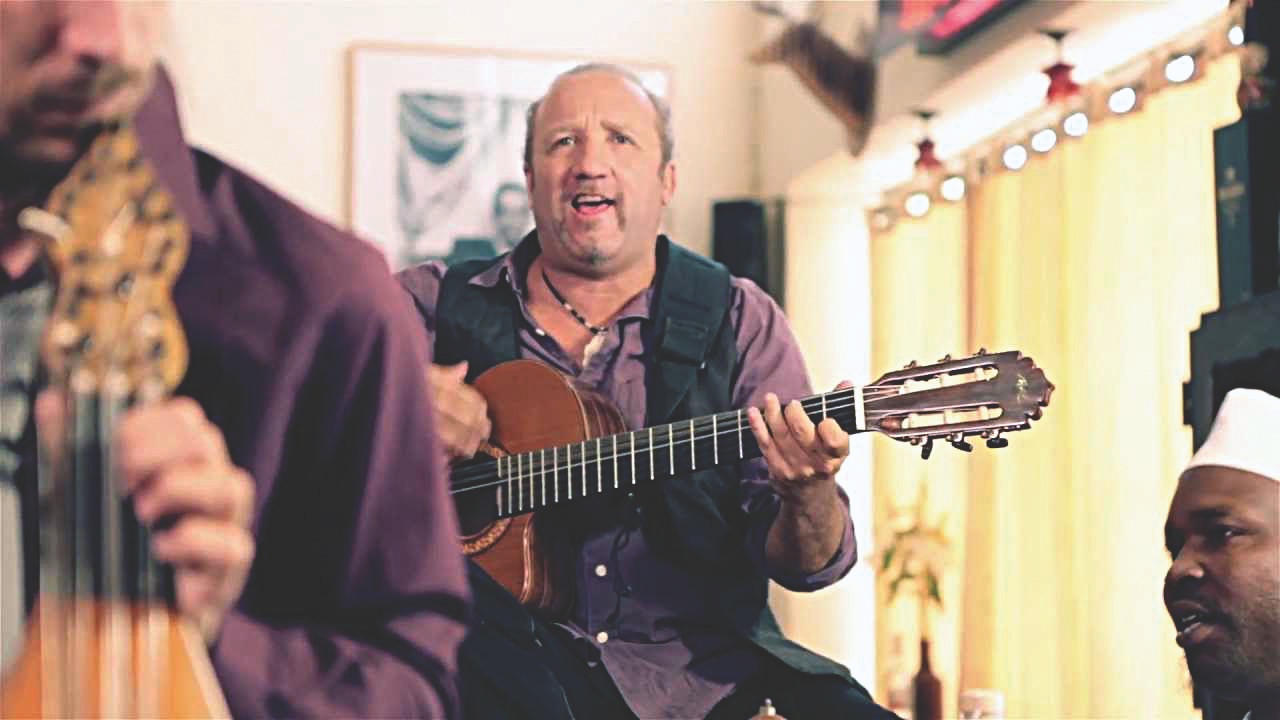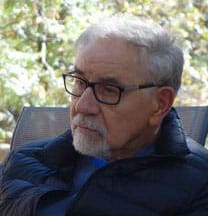 Gabriel Meyer Halevy. Photo from YouTube
Gabriel Meyer Halevy. Photo from YouTube Don’t call Gabriel Meyer Halevy’s 90-minute gatherings — filled with spiritual music and storytelling — performances. He prefers “prayer-formances.”
A committed Israeli social activist in the guise of a holy leprechaun — down to his chic vest and long scarf — the pony-tailed 51-year-old recently played guitar at an intimate gathering at a house in Eagle Rock, where he sang his own compositions in English, Spanish and Hebrew, with snippets of Arabic, Tibetan and other languages thrown in.
The motif in all his songs and stories is that we’re all human and should live in harmony — perhaps not surprising coming from the son of the late Rabbi Marshall Meyer, arguably the most significant figure in Latin American Jewry in the 20th century.
Meyer Halevy’s music consists of chants, prayers and joyful noises all rolled into one — as it probably was millennia ago when music first developed as a response to the mysteries of nature. While he recounted touching personal memories of peaceful gatherings with Jews and Muslims, Israelis and Palestinians, Christians, Hindus, Buddhists, atheists and even the Dalai Lama, he urged attendees to connect with one another as fellow humans sharing a fragile planet. By the time he finished, he had connected with a roomful of people who were dancing and singing, former strangers with their arms around one another.
Meyer Halevy was born and raised in Argentina, the son of Marshall Meyer, a tall and charismatic American rabbi who lived in the South American country for 26 years and revitalized Judaism there. He led a popular synagogue in Buenos Aires, founded Latin America’s first rabbinical seminary, started summer camps and other Jewish educational institutions, spearheaded the rise of Conservative Judaism in Latin America and, putting his life at risk, was a leader in the fight for human rights. In the early 1980s, after the fall of the junta responsible for 30,000 Argentine deaths, 1,700 of whom were Jews, he was on the commission that investigated what was known as the Dirty War.
Subsequent democratic governments in Argentina awarded Marshall Meyer the country’s highest honors, and after his death in 1993, a plaza in Buenos Aires was named for him.
Gabriel Meyer Halevy told the Journal that some of his earliest memories are of being with his father at the seminary, now called the Marshall Meyer Rabbinical Seminary. “My father would take me to his office,” Meyer Halevy said, “and I played with toys under his desk, and he would receive important visitors like Zubin Mehta, conductor of the Israel Philharmonic, or the Israeli ambassador.”
Meyer Halevy has poignant memories from his pre-teen years, as well: welcoming, at home, the Mothers of the Plaza de Mayo, women whose children had disappeared, as well as those whose lives were in danger and hiding from the government. “Often, I’d come home from school,” Meyer Halevy said, “and there’d be people trying to escape from the dictatorship.”
Meyer Halevy’s music consists of chants, prayers and joyful noises all rolled into one.
By the time he was 16, Meyer Halevy joined his father in human rights work. “I grew up with it and feel connected to that message. Of course, my dad and I are different generations — he was brought up in the 1940s with suits and ties and did the university thing, which I didn’t.”
Instead of college, Meyer Halevy wrote for “an Argentine underground magazine and was into theater. But the message and the work I do [now] in sacred activism is directly related to what I got from my dad.”
Since the 1990s Meyer Halevy has made his home in Israel, where he has been involved in many human rights ventures. He was co-founder of the Sulha Peace Project, which brings Jews, Christians and Muslims together so they can experience “their common humanity.”
In “Human,” the opening song on his CD, “The Human Project,” the singer says he is red, yellow, black and white, and that he’s of all religions and nationalities. In other words, that he’s human.
“That’s the vision that has kept me going throughout the years,” Meyer Halevy said. “Keeping the human family in heart and the global family, and the fight for life in all its forms. … It’s a holistic model I learned from my dad.”























 More news and opinions than at a Shabbat dinner, right in your inbox.
More news and opinions than at a Shabbat dinner, right in your inbox.